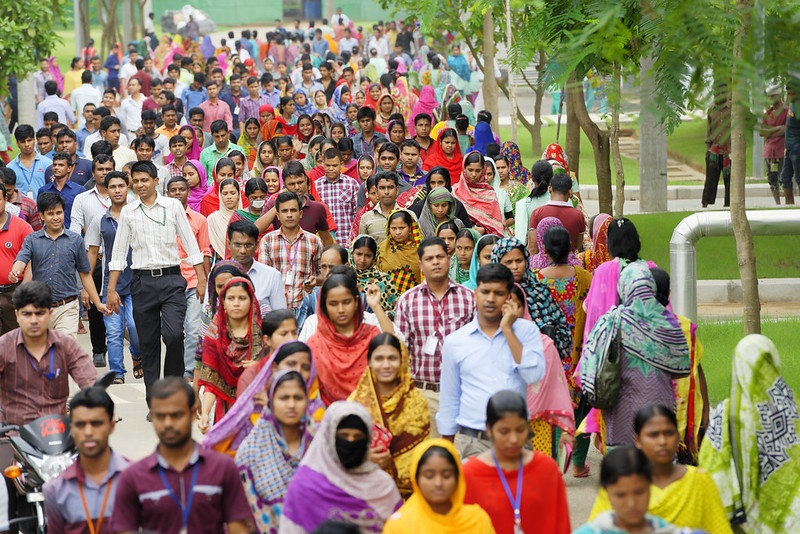27 May, 2024In a groundbreaking effort, the employment injury scheme, piloted in the readymade garment (RMG) sector in Bangladesh, will also include commuting accidents as part of industrial accidents eligible for compensation payout.
After a unanimous decision in the Governance Board of the Employment Injury Scheme (EIS) Pilot, accidents that may occur while workers commute to and from work will be included as workplace accidents as of 1 July.
In the meeting with the Governance Board, made up of employers’ organisations, government officials and workers’ representatives, on 13 May, it was also agreed that the around 75 workers who have filed claims for commuting accidents from 21 June 2022 when the pilot scheme was formally launched, will also be compensated.
Towhidur Rahman, IndustriALL Bangladesh Council’s representative on the EIS Board, says:
“It was important to get commuting accidents included in the injury scheme. We must ensure that garment workers are safe in their world of work which includes not just factories but also their daily commute, and if any incident happens then it must be compensated for. Hopefully when this pilot scheme becomes a law, we would have achieved better social security for garment workers.”
In 2022, Bangladesh’s ministry of labour and employment launched a pilot for an employment injury scheme in collaboration with the International Labour Organization.The scheme includes compensation for medical treatment and rehabilitation services, as well as income loss caused by occupational injuries and disease.
The pilot project will run for three years and includes export oriented RMG factories that are members of the Bangladesh Garment Manufacturers and Exporters Association and Bangladesh Knitwear Manufacturers and Exporters Association.
The EIS pilot has two components:
- data gathering and capacity-building component on occupational accidents, diseases and rehabilitation, based on a sample of representative factories
- risk-sharing component for long-term benefits: payment of ILO-compliant compensations in case of permanent disability / death for the entire export-oriented RMG sector
Christina Hajagos-Clausen, IndustriALL textile director, says:
“This is a major breakthrough that will ensure the extension of the social safety net to include more vulnerable workers. We urge brands and retailers to continue their financial contributions to the scheme as part of their responsibility for the workers in their supply chains.”
Brands doing business in Bangladesh should join EIS pilot
Last week, IndustriALL co-hosted, with the Local Authority Pension Fund Forum (LAPFF), a webinar on “Social protection for garment workers: The Employment Injury Scheme (EIS)”. The webinar aimed to bring investors and other attendees up to date on what the pilot has achieved in its first two years.
More than 50 brands have become signatories; they make voluntary payments to top off the fund and bring it up to international standards. A brand’s contribution constitutes just 0.019 per cent of its total export value from Bangladesh – a very small proportion to pay – but as one of the webinar speakers noted, the programme provides workers with the security of knowing that their families will not be helpless in the face of workplace injury or death.
For brands, the benefits of joining include contributing to a program that improves conditions for their supply chain workers – and those of the whole RMG sector – and reducing the reputational, legal and operational risks that come from emerging legislation requiring brands to carry out effective due diligence on their supply chains.
The EIS pilot is a functioning example of a multi-stakeholder program that rests on collective responsibility: of the government, employers, workers and sourcing brands, and even of investors, who have an important role to play in engaging their companies to become signatories.
“It is crucial that other brands doing business in Bangladesh join the EIS pilot. This time-bound, bridging solution addresses a pressing need in the RMG sector, and although social protection is a government function, the shared responsibility of other stakeholders has been, and will be, crucial to the initiative’s success,”
said Christina Hajagos-Clausen.
Photo: Bangladeshi garment employees leaving a clothing plant at the end of their working day. Credit: Crozet M. / ILO
